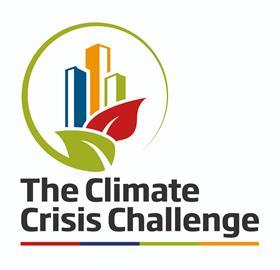What a week. First, former US cop Derek Chauvin was found guilty of the murder of George Floyd, prompting an outpouring of relief over the verdict.

Then, we had the outrageous, but happily short-lived, proposals for a football European Super League (ESL), spearheaded by the so-called ‘big six’ UK football clubs, which also prompted an outpouring of relief as one by one, the clubs were shamed into withdrawing.
Amid all this, the government’s big announcement that it is enshrining in law a target to slash carbon emissions 78% by 2035 was rather lost – and with it the prospect of any outpouring of relief that it might finally be getting with the climate change programme.
So is the government finally getting its act together? I might be over-reaching, but the similarities between the ESL and ESG seem to extend beyond two shared letters. Both have involved extraordinary hype and hubris on the part of the ESL’s advocates and government respectively – not to mention a total detachment from reality.
UKGBC chief executive Julie Hirigoyen is certainly alert to the parallels: “Before talking up his away game and acting like the UK is in a climate ‘super league’, the PM needs to start getting his home form in order, and ensure he’s not missing open goals,” she said on the announcement of the new government target.
She is clearly sceptical about the government’s ability to walk the walk as well as talk the talk and so is the property industry, according to the findings of our second Climate Crisis Challenge perceptions survey. Only 38% of respondents strongly agree that the government is likely to regulate for higher environmental standards this year, compared with 60.9% last year. Not exactly a ringing endorsement.
Prestbury’s Nick Leslau is equally unconvinced. “In competing to outperform one another and impress electorates with their environmental credentials, governments appear to be showing an alarming lack of thought for the unintended financial consequences of their ambitions,” he says.
As for the impact of Covid, while almost half (49.2%) think the virus will accelerate the climate change agenda, 34.5% believe it will slow it down, so meaningful progress in the run up to COP26 this November is not likely to be the slam dunk some might have hoped.
Regardless of the level of government intervention or impact of Covid, the industry must keep up the momentum. As Jefferies’ Mike Prew notes in another nod to the super league fiasco: “For REITs that think building wellness and energy efficiency credentials are just a box-ticking exercise, it may already be too late. They risk seeing their equity in 20th century buildings playing in injury time, to be stretchered off the pitch in 21st century markets.”

What is alarming is that for far too many organisations, words still speak louder than actions. Peter Bill warns of the growing deployment of greenwash “to camouflage the honest intent to make a profit”. “This is not an attack on ‘green’ codes such as BREEAM,” he argues. “It is a defence against such standards falling into disrepute because of the insincerity of those who over-hype them as selling aids. The truth is that no developer will surrender a square foot of net lettable space to save the planet. Why would they?”
That, of course, is the big question.




























No comments yet